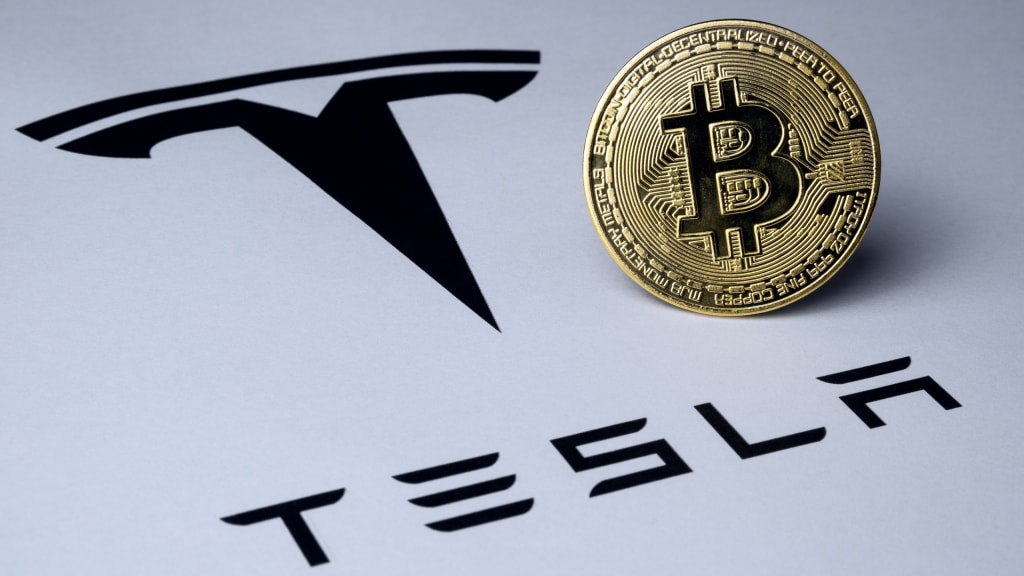Bitcoin Becomes Corporate Darling
Major Institutions Flock to Cryptocurrency as Inflation Hedge

Bitcoin Becomes Corporate Darling: Major Institutions Flock to Cryptocurrency as Inflation Hedge
In a groundbreaking shift that has reverberated throughout the financial world, major corporations and financial institutions are increasingly turning to Bitcoin as a hedge against inflation, with news emerging of several Fortune 500 companies adding the cryptocurrency to their balance sheets. This unprecedented surge in institutional adoption marks a turning point in Bitcoin's journey towards mainstream acceptance and underscores its growing importance as a store of value in today's uncertain economic landscape.
The allure of Bitcoin as a hedge against inflation stems from its unique properties as a decentralized digital currency with a finite supply. Unlike traditional fiat currencies, which can be printed endlessly by central banks, Bitcoin has a maximum supply of 21 million coins, making it immune to the erosive effects of inflation. This scarcity, combined with its decentralized nature and global acceptance, has made Bitcoin an attractive asset for investors seeking to preserve their wealth in the face of currency debasement.
Leading the charge in Bitcoin's institutional adoption are several Fortune 500 companies that have publicly disclosed their investments in the cryptocurrency. Companies such as MicroStrategy, Tesla, and Square have made headlines by allocating a portion of their corporate treasuries to Bitcoin, viewing it as a strategic asset to safeguard against inflation and preserve shareholder value. These bold moves have not only validated Bitcoin as a legitimate asset class but have also paved the way for other corporations to follow suit.
MicroStrategy, a business intelligence firm led by CEO Michael Saylor, made headlines in 2020 when it announced that it had converted its entire cash reserve into Bitcoin. Since then, the company has continued to accumulate Bitcoin at an astonishing pace, amassing over 100,000 BTC – worth billions of dollars – in its corporate treasury. Saylor has been a vocal advocate for Bitcoin, touting its potential to outperform traditional assets and provide superior returns over the long term.
Tesla, the electric vehicle manufacturer led by billionaire entrepreneur Elon Musk, made waves earlier this year when it revealed that it had purchased $1.5 billion worth of Bitcoin and would accept the cryptocurrency as payment for its products. The move sent shockwaves through the corporate world and propelled Bitcoin to new heights, as investors rushed to capitalize on Tesla's endorsement of the digital currency. Musk's support for Bitcoin has been a driving force behind its recent surge in popularity, with his tweets often causing dramatic price movements in the market.
Square, the financial services company founded by Twitter CEO Jack Dorsey, has also embraced Bitcoin as part of its corporate strategy. In addition to investing in Bitcoin for its corporate treasury, Square has launched various products and services designed to make it easier for individuals and businesses to buy, sell, and use Bitcoin. These initiatives, combined with Dorsey's vocal support for Bitcoin, have helped raise awareness of the cryptocurrency and drive adoption among mainstream users.
But it's not just Fortune 500 companies that are jumping on the Bitcoin bandwagon – traditional financial institutions are also getting in on the action. Investment banks, asset managers, and hedge funds are increasingly allocating capital to Bitcoin, viewing it as a valuable addition to their investment portfolios. This influx of institutional capital has provided a major catalyst for Bitcoin's recent price surge, as institutional investors seek exposure to the cryptocurrency as a hedge against inflation and a diversification strategy.
The surge in institutional adoption has not gone unnoticed by regulators and policymakers, who are grappling with how to regulate the burgeoning cryptocurrency market. While some countries have embraced Bitcoin and enacted favorable regulations to encourage its adoption, others have taken a more cautious approach, citing concerns about money laundering, terrorism financing, and consumer protection. Nevertheless, the trend towards greater institutional adoption of Bitcoin appears to be unstoppable, as more companies and financial institutions recognize its potential to reshape the global financial system.
Bitcoin's meteoric rise to prominence as a hedge against inflation is a testament to its enduring value and utility in today's uncertain economic climate. As major corporations and financial institutions continue to flock to Bitcoin in search of safety and stability, the cryptocurrency's role as a store of value and a hedge against inflation is likely to become even more pronounced in the years to come. Whether you're a Fortune 500 company or an individual investor, Bitcoin offers a compelling opportunity to protect and grow your wealth in an increasingly uncertain world.
About the Creator
Enjoyed the story? Support the Creator.
Subscribe for free to receive all their stories in your feed. You could also pledge your support or give them a one-off tip, letting them know you appreciate their work.





Comments
There are no comments for this story
Be the first to respond and start the conversation.